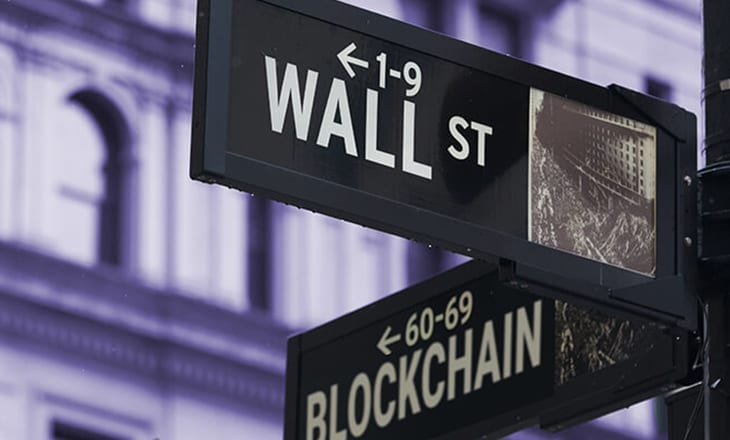Blockchain technology is making inroads into every possible corner of commerce, if you take the time to examine the level of research and development taking place in this new decentralized ledger system. Yes, cross-border payment transactions have received the most hype in the press, but as we recently reported:
Consulting firms have told us that billions of dollars are being invested each year in these new projects, while futurists inform us that the use of blockchain concepts in five to ten years will be as ubiquitous as the Internet.
A recent “smart contract” driven option transaction has now given rise to optimism that the blockchain can revolutionize the back office accounting necessary to complete a single option on the S&P 500 Index. Volume in this arena is enormous, roughly $400 billion in daily turnover, but the clearing and settlement process involves several middlemen and can take up to two days to complete. In many respects, the entire process mimics the cross-border payment environment in every conceivable way.
If the blockchain is perfectly suited for cross-border transfers, then is there any doubt that it could clean up the mess on Wall Street faster than you can say Ripple versus SWIFT? Coindesk reported that:
The cryptocurrency industry isn’t replacing Wall Street just yet. But inventors and entrepreneurs are working on it, with some initial success, albeit modest. In this case, an option premium of 0.0202 bitcoin ($217 at the time) paid via a smart contract may have just become the proof of concept.
The man behind this initial “proof of concept” is Emmanuel Goh, CEO of London-based firm “Skew.” (yes, the name has a period on the end), a startup specializing in analytical tools for the crypto industry. Goh was a former trader of options in the London center for JPMorgan Chase. He is well grounded in the options field and decided to take a shot at overhauling the options process. He formed “Skew.” And has raised $2 million from assorted venture capitalist firms, including Silicon Valley icon Kleiner Perkins, for initial seed capital.
To test his ideas, he chose Digital Garage, a Tokyo-based firm that had expertise in programming smart contracts for bitcoin blockchains, which can drive the transaction when activated on a decentralized basis. The initial trade occurred on September 6th, with an expiration date of the 20th. Goh noted that on the expiration date:
The smart contract automatically used a price feed from Atlanta-based Intercontinental Exchange (parent company of the New York Stock Exchange) to establish the final price for the S&P 500.
The transaction string contained the necessary collateral and settlement data.
Goh was pleased that everything actually worked as planned:
The trade settlement took 45 minutes to process, with total transaction costs equal to a few U.S. dollars. The smart contract knows exactly how much the parties will get back. In theory, the cost would have remained the same even if the notional amount of the trade had stretched into the millions or billions of dollars. The important part is that you don’t have all the intermediaries.
The paramount question – Is this blockchain process scalable, at least to the volume levels anticipated on the S&P 500? The first concern would be the Bitcoin blockchain platform, which does not have the quickest game in town. Smart contract programs are typically built with Ethereum protocols. It may even behoove Goh to check in with Ripple and its “consensus algorithm” approach, which does not require mining verification.
At the end of the day, there is more work to be done. A “proof of concept” is a long way from a finished product, ready to take on the world, but the promise is there. Large oak trees can grow from tiny little acorns, and this little $217 options trade “acorn” may sprout one day in the middle of Wall Street.
